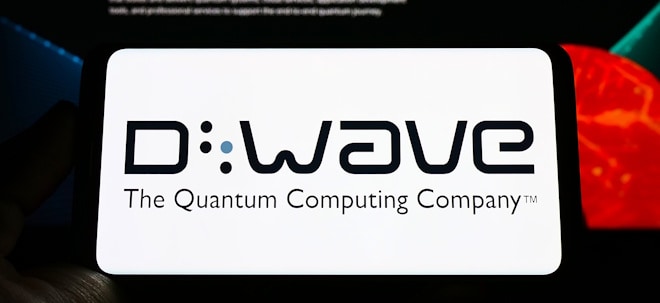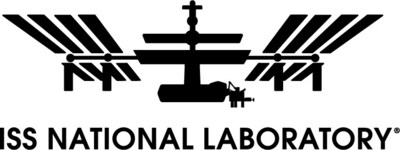NASA's SpaceX Crew-11 Mission to Advance Stem Cell Manufacturing and In-Orbit Data Processing
Crew members will support ISS National Lab-sponsored investigations with important applications in regenerative medicine, advanced materials, and edge computing
KENNEDY SPACE CENTER, Fla., July 30, 2025 /PRNewswire/ -- Four astronauts are set to launch to the International Space Station (ISS) as part of NASA's SpaceX Crew-11 mission. Over the coming months, the crew will support research to produce stem cells in space, study engineered liver tissue, and advance in-orbit data processing. The mission is scheduled to launch no earlier than 12:09 p.m. EDT on July 31, 2025, from NASA's Kennedy Space Center in Florida.
NASA astronauts Zena Cardman (commander) and Mike Fincke (pilot), along with Japan Aerospace Exploration Agency (JAXA) astronaut Kimiya Yui (mission specialist) and Roscosmos cosmonaut Oleg Platonov (mission specialist), will serve as part of the Expedition 73 and 74 crew. During the mission, the crew will work on several payloads sponsored by the ISS National Laboratory® to benefit humanity and foster a robust economy in low Earth orbit (LEO).
Below are some ISS National Lab-sponsored investigations the crew is expected to work on.
- Two projects focus on the production of stem cells in space to improve their maturation into different types of tissues. Research teams at Cedars-Sinai Medical Center and the University of Colorado will determine whether stem cells grow faster in space, resulting in larger numbers of cells for therapies to treat conditions like heart disease, neurodegenerative diseases, and more.
- A project from the Wake Forest Institute for Regenerative Medicine will study engineered liver tissue containing blood vessels in microgravity. Results from the project, which was part of NASA's Vascular Tissue Challenge, could lead to new regenerative therapies for patients on Earth and, eventually, to the production of human tissues in space for organ transplants.
- New York high school students Isabelle Chuang and Julia Gross, winners of the 2024 Genes in Space™ competition, aim to use phages—viruses that attack bacteria—as therapeutic agents to combat microbial infections in space. Genes in Space, founded by Boeing and miniPCR bio and supported by the ISS National Lab, invites students in grades 7-12 to propose pioneering DNA experiments that leverage the unique environment of the space station.
- The ISS National Lab has a longstanding partnership with the U.S. National Science Foundation (NSF) to support fundamental research in LEO, and multiple NSF-funded projects will launch in the coming months. One such investigation from the University of California, Berkeley will study how tiny particles move within a liquid droplet and then stick to the droplet's surface. Understanding this process is useful for many things like producing advanced materials and removing pollutants in the environment.
- A project from Axiom Space, an ISS National Lab Commercial Service Provider, and Red Hat, a leading provider of open-source solutions, seeks to increase in-orbit data storage and edge-processing capabilities with the Red Hat Device Edge platform. These capabilities would enable near real-time analytics to support scalable expansion and iteration of experiments while they operate in space—which will be paramount to scaling R&D and manufacturing on future space platforms.
This mission is the 11th SpaceX crew rotation to the orbiting laboratory as part of NASA's Commercial Crew Program. To learn more about the ISS National Lab, including research and technology demonstrations that have flown on previous missions, visit our launch page.
Download a high-resolution image for this release: NASA's SpaceX Crew-11
About the International Space Station (ISS) National Laboratory:
The International Space Station (ISS) is a one-of-a-kind laboratory that enables research and technology development not possible on Earth. As a public service enterprise, the ISS National Laboratory® allows researchers to leverage this multiuser facility to improve quality of life on Earth, mature space-based business models, advance science literacy in the future workforce, and expand a sustainable and scalable market in low Earth orbit. Through this orbiting national laboratory, research resources on the ISS are available to support non-NASA science, technology, and education initiatives from U.S. government agencies, academic institutions, and the private sector. The Center for the Advancement of Science in Space® (CASIS®) manages the ISS National Lab, under Cooperative Agreement with NASA, facilitating access to its permanent microgravity research environment, a powerful vantage point in low Earth orbit, and the extreme and varied conditions of space. To learn more about the ISS National Lab, visit our website.
As a 501(c)(3) nonprofit organization, CASIS accepts corporate and individual donations to help advance science in space for the benefit of humanity. For more information, visit our donations page.
Media Contact: | Patrick O'Neill |
904-806-0035 | |
International Space Station (ISS) National Laboratory | |
Managed by the Center for the Advancement of Science in Space® (CASIS®) | |
__________________________________________________________________________ |
![]() View original content to download multimedia:https://www.prnewswire.com/news-releases/nasas-spacex-crew-11-mission-to-advance-stem-cell-manufacturing-and-in-orbit-data-processing-302517550.html
View original content to download multimedia:https://www.prnewswire.com/news-releases/nasas-spacex-crew-11-mission-to-advance-stem-cell-manufacturing-and-in-orbit-data-processing-302517550.html
SOURCE International Space Station National Lab


